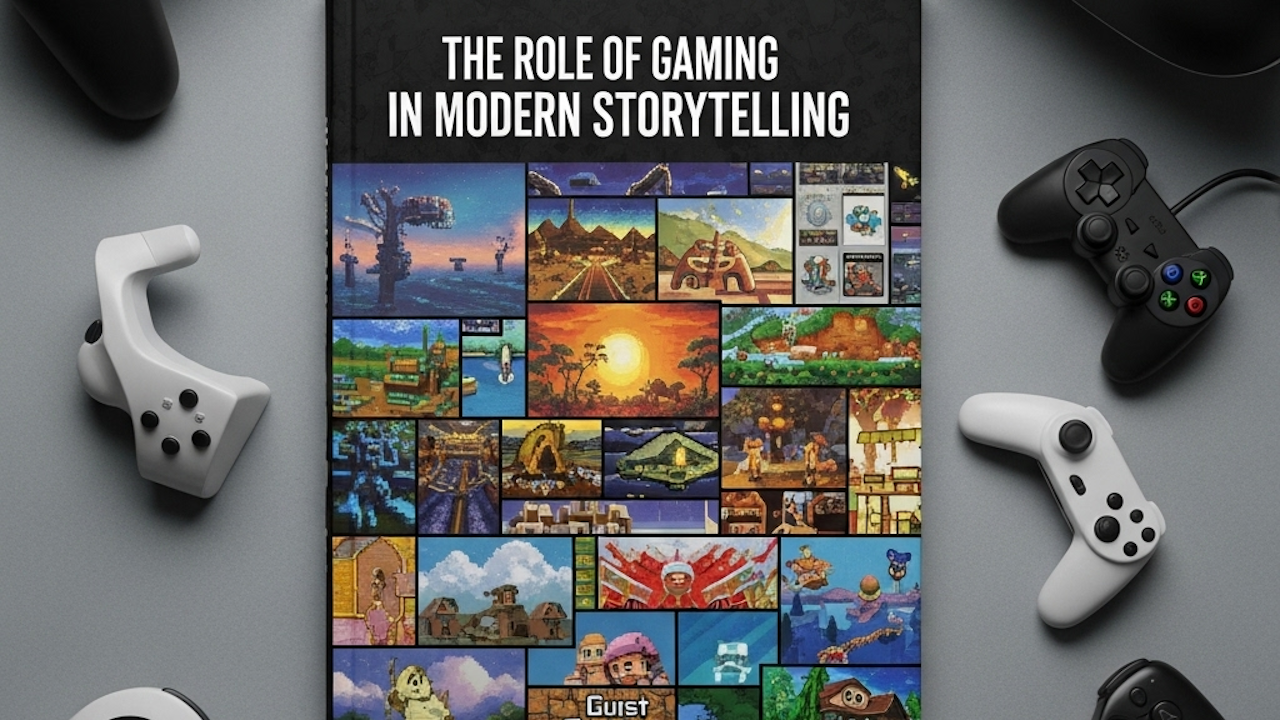Storytelling has been a fundamental part of human culture for millennia, evolving from oral traditions to literature, theater, film, and, more recently, video games. While traditional storytelling mediums present narratives in a linear fashion, gaming offers a unique form of interactive storytelling that allows players to engage with and influence the story in ways that were previously unimaginable. The role of gaming in modern storytelling has expanded significantly, introducing innovative narrative techniques, deep character development, and immersive world-building that set it apart from conventional storytelling forms.
One of the most striking aspects of gaming as a storytelling medium is its interactivity. Unlike books or films, where audiences passively consume the story, video games enable players to become active participants in the narrative. This interaction fosters a deeper connection to the story, as players’ choices can alter outcomes, affect character relationships, and shape the world they inhabit. Games like The Witcher 3: Wild Hunt and Detroit: Become Human present branching narratives where player decisions lead to multiple endings, making each playthrough unique. This dynamic approach to storytelling empowers players, giving them agency over the narrative and encouraging them to invest emotionally in the unfolding events.
Character development in gaming has also reached new heights, with protagonists and supporting characters often displaying complex emotions, motivations, and growth arcs. Unlike other media, where character development unfolds passively, gaming allows players to experience a character’s journey firsthand, often shaping their moral compass and personality through in-game choices. Games like The Last of Us and Red Dead Redemption 2 demonstrate the potential for deep, character-driven storytelling, where players form strong emotional bonds with the protagonists. These narratives delve into themes of survival, love, loss, and redemption, showcasing the capacity of gaming to tell deeply human stories that resonate with players on a personal level.
World-building is another area where gaming excels as a storytelling medium. The ability to create expansive, immersive worlds that players can explore at their own pace adds layers of depth to the narrative. Open-world games like The Elder Scrolls V: Skyrim and Cyberpunk 2077 offer richly detailed environments filled with lore, hidden stories, and non-playable characters that contribute to the overall narrative. Environmental storytelling, where the world itself tells a story through visual and auditory cues, is a hallmark of modern gaming. Subtle details like abandoned buildings, scattered notes, or overheard conversations add depth to the story, allowing players to piece together narratives organically rather than through direct exposition.
Another significant development in gaming storytelling is the use of emergent narratives—stories that arise naturally through gameplay rather than being pre-scripted. Unlike traditional narratives with fixed structures, emergent storytelling allows players to create their own experiences through interactions with the game world. Games like Minecraft, No Man’s Sky, and The Sims thrive on this approach, where the story is shaped by the player’s actions rather than a predetermined script. These games demonstrate how storytelling in gaming can be personal and unique, with each player crafting their own narrative through exploration, creativity, and decision-making.
The technological advancements in gaming have further expanded storytelling possibilities. Motion capture technology and advanced artificial intelligence allow for more realistic character animations, expressions, and behaviors, enhancing emotional engagement. Games such as L.A. Noire and Hellblade: Senua’s Sacrifice have leveraged these technologies to create compelling narratives that rely on nuanced character performances. Additionally, virtual reality (VR) and augmented reality (AR) have opened new frontiers in storytelling, allowing players to step directly into the narrative. VR games like Half-Life: Alyx offer unprecedented levels of immersion, making the story feel more tangible and personal.
The evolution of multiplayer and live-service games has also introduced new forms of storytelling. Games like Destiny 2 and Fortnite incorporate evolving narratives that change over time based on player interactions and developer updates. This dynamic storytelling approach keeps players engaged for extended periods, as they witness the story unfold in real-time alongside a global community. Additionally, massively multiplayer online role-playing games (MMORPGs) such as World of Warcraft allow players to be part of large-scale, player-driven stories, where alliances, betrayals, and conflicts emerge organically within the game’s universe.
Another crucial aspect of gaming’s role in storytelling is its ability to tackle complex themes and social issues. Games have become a platform for exploring topics such as mental health, war, discrimination, and existential dilemmas. Titles like Spec Ops: The Line challenge players’ perceptions of morality in war, while Celeste uses its gameplay mechanics to metaphorically represent struggles with anxiety and depression. By allowing players to experience these issues firsthand rather than merely observing them, games can foster empathy and understanding in ways that traditional media cannot.
Despite these advancements, gaming as a storytelling medium still faces challenges. Some critics argue that gameplay mechanics can sometimes hinder narrative flow, especially in cases where storytelling takes a backseat to action or repetitive objectives. Additionally, not all players may engage with a game’s story in the same way, as some may focus solely on gameplay while ignoring narrative elements. Developers must find a balance between interactivity and storytelling to ensure that both aspects complement each other rather than compete for attention.
The impact of gaming on modern storytelling is undeniable. As technology continues to evolve, the potential for deeper, more immersive narratives will only grow. Video games have already proven their ability to tell powerful, emotionally resonant stories that rival those found in literature and film. Whether through intricate character arcs, expansive open worlds, emergent narratives, or thought-provoking themes, gaming continues to push the boundaries of storytelling, offering audiences experiences that are both unique and deeply personal.


